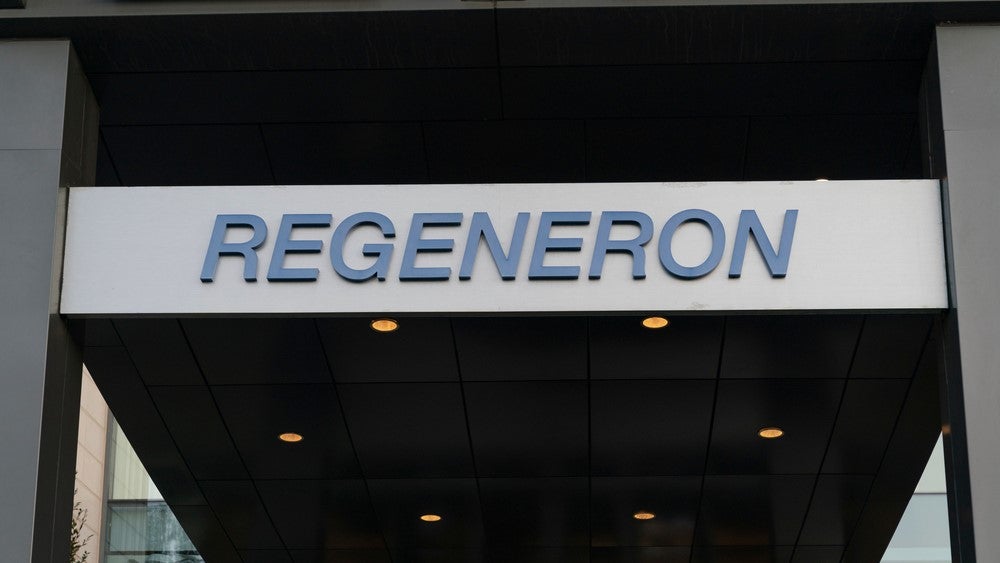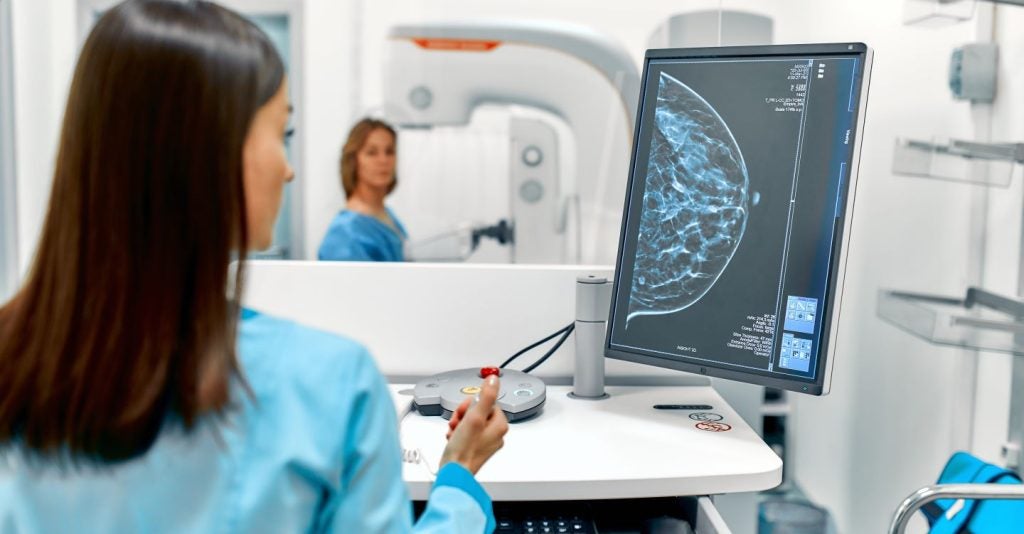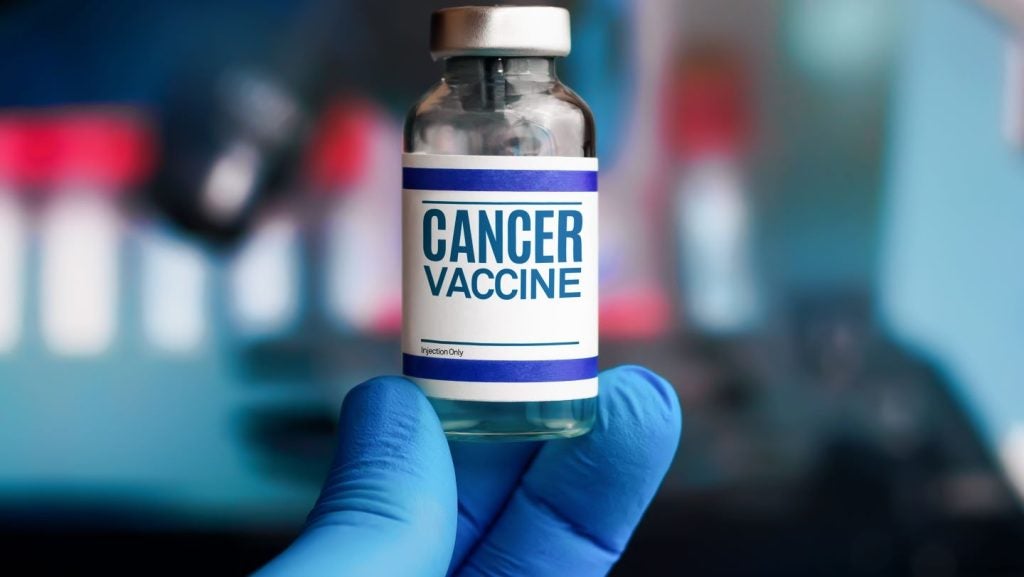Merck (MSD) and Moderna have enrolled the first patients in their INTerpath-002 study, which is a pivotal Phase III clinical trial evaluating V940 (mRNA-4157) in combination with MSD’s Keytruda (pembrolizumab).
INTerpath-002 is a global, randomised, double-blind, and active comparator-controlled Phase III trial (NCT06077760) that will evaluate the combination therapy in approximately 868 patients, with the first patients enrolled in Australia.
The trial is investigating the candidates as adjuvant treatment in patients with completely resected (R0) Stage II, IIIA or IIIB (with nodal involvement [N2]) non-small cell lung cancer (NSCLC).
V940 is an experimental mRNA cancer vaccine. The therapeutic candidate delivers mRNA encoding for tumour-specific antigens selectively expressed by the tumour cells and stimulates the immune system to produce an immune response to recognise and destroy cancer cells expressing specific antigens. GlobalData predicts a sales forecast for V940 of $2.8bn in 2029.
GlobalData is the parent company of Clinical Trials Arena.
Keytruda is a monoclonal antibody that binds to the PD-1 receptor and blocks its interaction with PD-L1 and PD-L2, releasing PD-1 pathway-mediated inhibition of the immune response, including the anti-tumour immune response. GlobalData predicts the global sales forecast for Keytruda to hit $33.4bn in 2029.
Trial design for INTerpath-002
Following a complete surgical resection and adjuvant chemotherapy, patients will be randomised in a 1:1 ratio to receive 1mg dose of V940 every three weeks for up to nine doses and 400mg dose of Keytruda every six weeks for up to nine cycles or the active comparator.
The active comparator is Keytruda alone for approximately one year or until disease recurrence or any of the other criteria for discontinuation of study intervention are met.
The primary endpoint is disease-free survival (DFS), defined as the time from randomisation to any recurrence or occurrence of new primary NSCLC as assessed by the investigator, or death due to any cause.
The secondary endpoints are overall survival (OS), distant metastasis-free survival (DMFS), lung cancer-specific survival (LCSS), safety, and quality of life (QoL).
Combination therapy investigated in other oncological indications
The same combination therapy is also being investigated in the INTerpath-001 trial (NCT05933577) in patients with resected high-risk (Stage IIB-IV) melanoma. The companies plan to continue the expansion of the comprehensive clinical development program for V940 (mRNA-4157) to additional tumour types.
MSD and Moderna reported positive results from a Phase IIb trial in stage III/IV melanoma patients with a high risk of recurrence after surgery in April 2023. The results showed the cancer vaccine combined with Keytruda reduced the risk of recurrence or death by 44% compared to Keytruda alone.
















